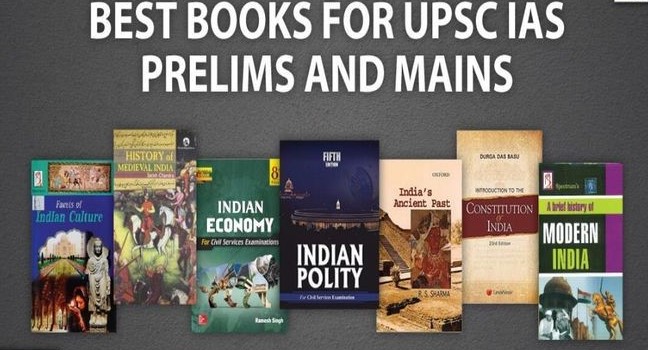



UPSC Books: Best Books for UPSC Prelims & Mains

Table of Contents
UPSC IAS Books is an important discussion when it comes to preparing for the UPSC syllabus. Candidates preparing for the IAS exams are sometimes perplexed as to which books must be studied and which must be avoided. Candidates frequently inquire if they should study NCERT textbooks or directly refer to books authored by established writers.
Candidates must make a note of the fact that UPSC books for prelims and mains examinations for subjects such as Indian Polity, History of India & World, Indian Geography, Indian Economy, and a few others are majorly same, and hence candidates should adhere to them while studying for the whole syllabus.
For UPSC IAS preparation, there is a plethora of study material available both online and offline. Candidates must assemble their offline and online study materials on the suggestion of their teachers, mentors, and exam toppers.
UPSC Books: Best Books for IAS Prelims
It is recommended that all IAS applicants begin with NCERT texts from Class 6 to Class 12. UPSC candidates should purchase at least one standard book for each subject and then broaden their reading by referencing other additional books. Candidates can check below to learn more about important books.
UPSC Books for History
UPSC Books for Indian Polity & Constitution
UPSC Books for Geography
UPSC Books for Economics
UPSC Books for International Relations
UPSC Books for Environment - Ecology, Biodiversity & Climate Change
UPSC Books for Science & Technology
UPSC Books for CSAT
UPSC Books for Current Affairs
UPSC Books: Best Books for IAS Mains
Following the preliminary examination, the UPSC Prelims result is published in the form of a PDF document that includes the roll number of the shortlisted applicants. Only candidates having their roll numbers in the merit list are called for UPSC Mains exam. Candidates can check below the list of books needed for the UPSC Mains examination:
UPSC Books for GS Paper I (Geography)
UPSC Books for GS Paper I (History, Indian Heritage & Culture)
UPSC Books for World History (GS Paper I)
UPSC Books for Indian Society (GS Paper I)
UPSC Books for GS Paper II
UPSC Books for GS Paper III
UPSC Books for Ethics (GS IV)
UPSC Study Material
Aside from NCERT and reference books, the UPSC study material includes certain external sources. Candidates should read the essential study material in order to be able to answer the key questions asked in the UPSC examination. Here is a list of the study materials that candidates must refer while their preparation:
UPSC Online Study Material
UPSC online study material can be easily found on multiple websites related to UPSC. The UPSC online preparation can be easily done by the candidate provided they have arranged all the necessary study material. Candidates can download NCERT e-books and other reference books and magazines on their laptop to study them thoroughly. However, it is suggested that candidates make notes simultaneously of important topics relevant to the exam.
Candidates can refer to the Indian Economy book by Nitin Singhania for studying economics. Candidates should also read Budget, Economic Survey, and Niti Aayog reports to answer in-depth questions in GS Paper II.
NCERT is an important part of the UPSC IAS preparation, however, it is not enough. Candidates, besides considering NCERT, must also refer to the standard books for all subjects.
Nitin Singhania's Indian Art & Culture is a must read for candidates preparing for Indian Culture for UPSC.
As free study material, candidates may access daily current events PDFs, NCERTs, and a few more books online. However, not all books are available online, so candidates must purchase them in the market.
The fundamental book that UPSC candidates must study for Indian Polity is M. Laxmikant. The book is sufficient for understanding static facts on the Indian Constitution. However, for in-depth understanding necessary in the GS Paper II, applicants must correlate the book with current events.
© 2025 iasgyan. All right reserved